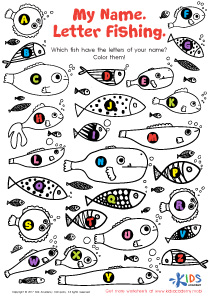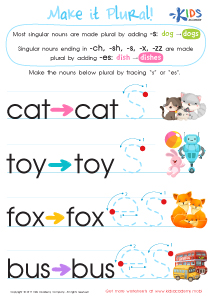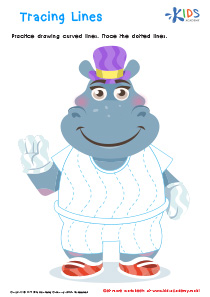Alphabet Recognition Easy Letter Recognition Worksheets for Ages 3-7
5 filtered results
-
From - To
Unlock the power of reading with our "Alphabet Recognition Easy Letter Recognition Worksheets for Ages 3-7." Perfectly tailored for young learners, these interactive worksheets make letter identification fun and engaging. Each activity is designed to boost early literacy skills, enhance fine motor development, and foster a love for learning. Bright, colorful images and simple instructions ensure children can complete exercises with ease and confidence. Ideal for home or classroom use, these worksheets provide invaluable support on the journey to mastering the alphabet. Watch your child's confidence soar as they recognize, trace, and match letters. Start their learning adventure today!
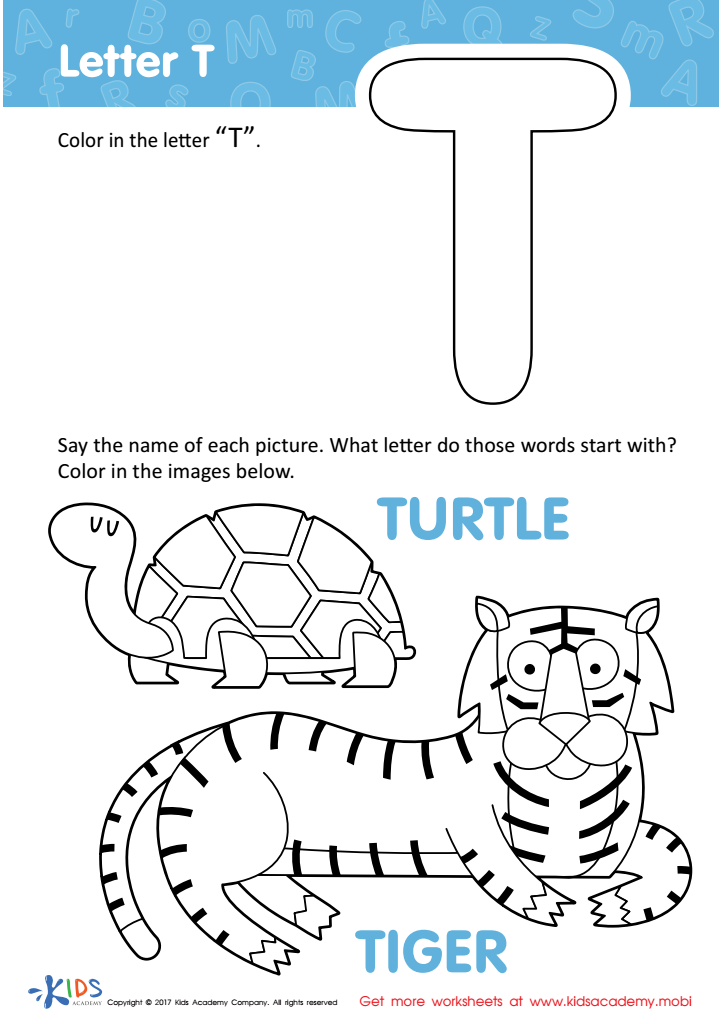

Letter T Coloring Sheet
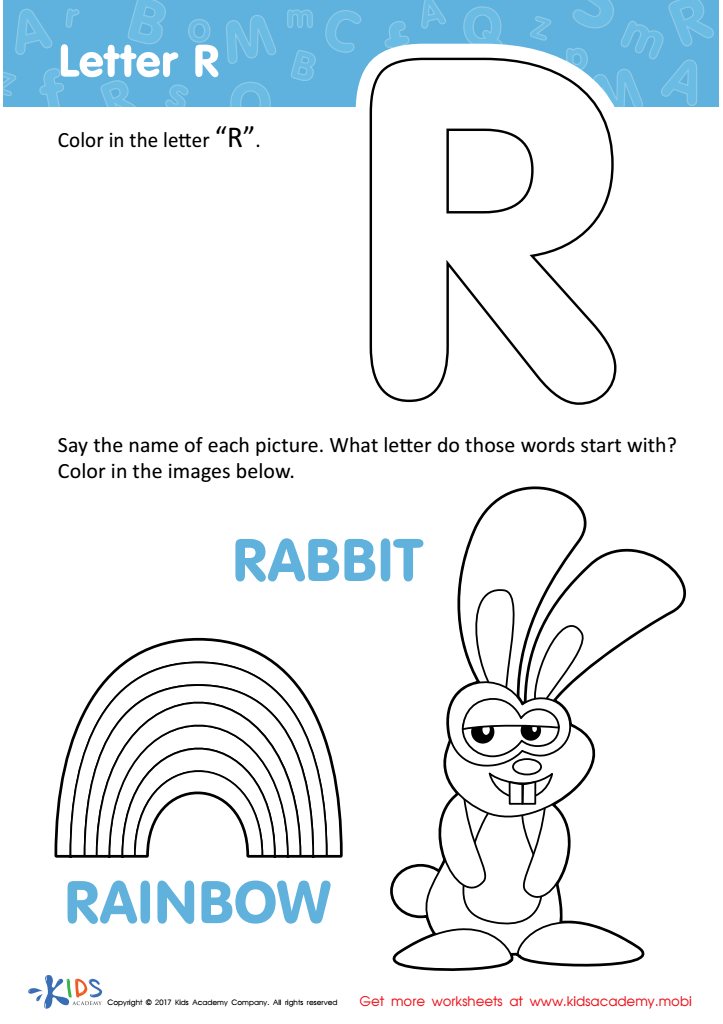

Letter R Coloring Sheet
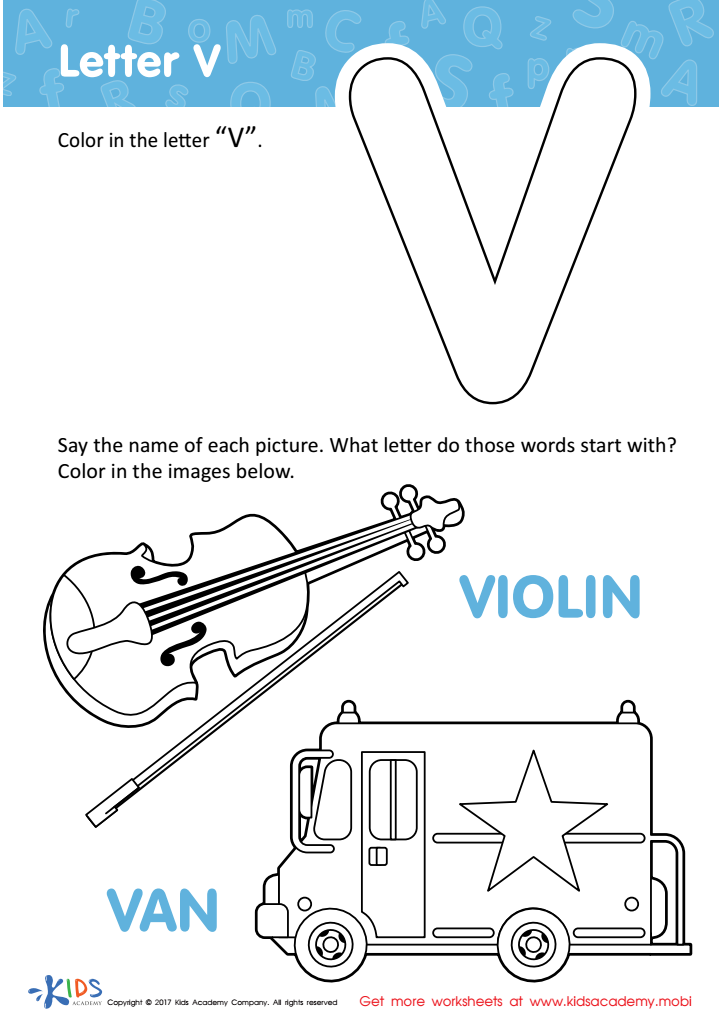

Letter V Coloring Sheet
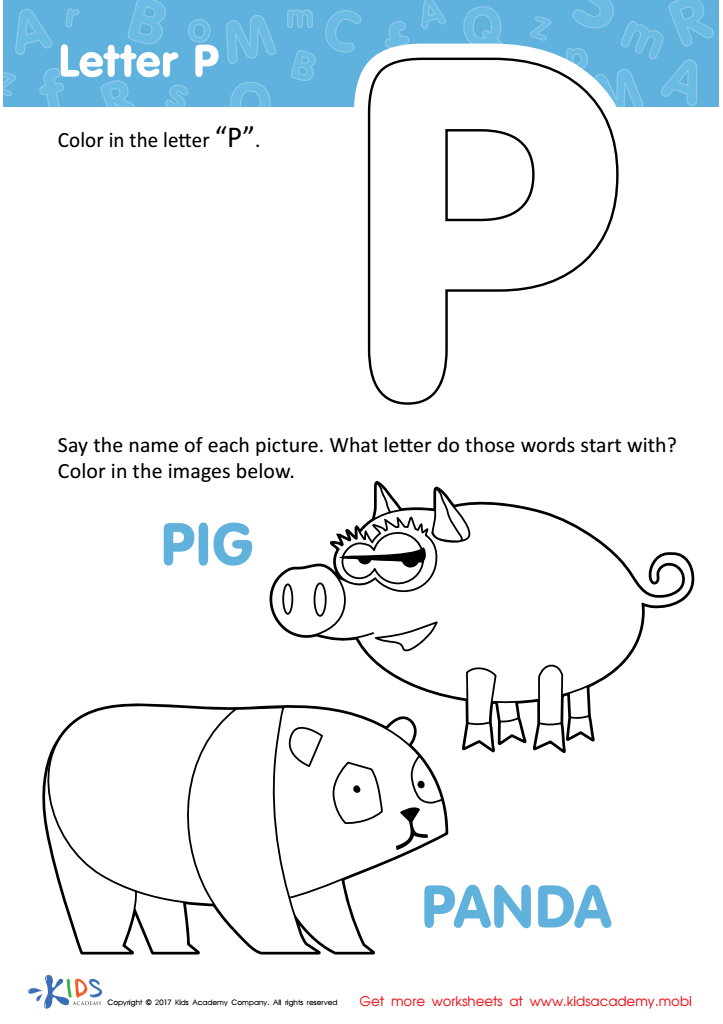

Letter P Coloring Sheet
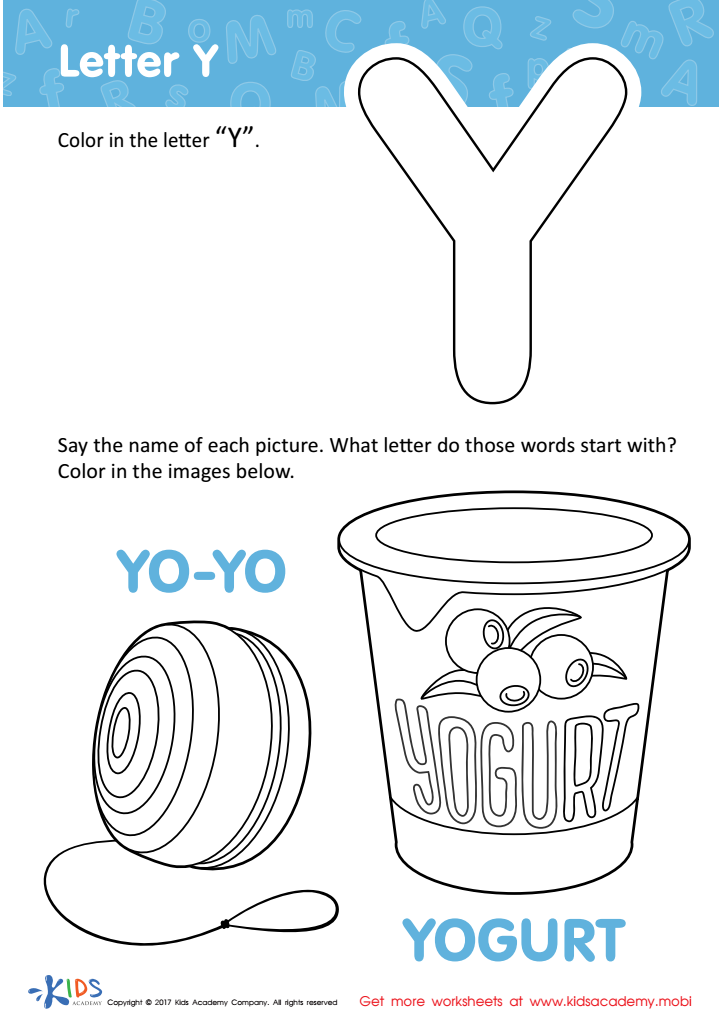

Letter Y Coloring Sheet
Alphabet recognition is a foundational skill for young learners, vital for ages 3-7, as it lays the groundwork for reading and writing. When children recognize letters and their corresponding sounds, they can better associate these with words, paving the way for literacy development. Mastery of the alphabet facilitates early phonemic awareness, an essential step in decoding words and understanding their meanings, which significantly contributes to future academic success.
For parents and teachers, focusing on letter recognition helps identify early learning progress and potential difficulties. Early intervention can address challenges such as dyslexia at a stage when children are most malleable. Engaging in simple alphabet recognition activities bolsters memory, cognitive development, and fine motor skills through tracing and writing exercises.
Additionally, a confident grasp of the alphabet boosts self-esteem in young learners, encouraging a positive attitude towards learning. Vibrant and enjoyable letter recognition activities can turn the learning process into an exciting adventure, fostering a lifelong love of reading. By taking alphabet recognition seriously, parents and teachers equip children with crucial skills that support literacy, academic performance, and beyond. Providing this foundation ensures children are better prepared for more complex learning experiences in their educational journey.
 Assign to My Students
Assign to My Students











